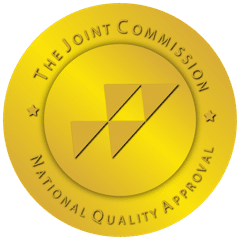What does it mean to have a spiritual awakening exactly? You may hear many people in recovery talk about it. There is no reason to associate spirituality with any particular religion, and raising the subject of spirituality might turn some people off the idea of getting sober. Recovery emphasizes the importance of spirituality.
In the same way that each person experiences addiction recovery in their own way, each individual will experience spiritual awakening differently. It is still possible to discover a deeper understanding of what recovery means, long after rehab has ended, by examining what spiritual awakening means.
The Connection Between Spirituality and Addiction
Since addiction is a chronic, relapsing disorder that physically alters the way the brain works, it’s not surprising that we are affected physically, psychologically, and spiritually by it.
There is no doubt that addiction affects the body physically. Our bodies are attacked by toxins, lack of sleep, and nutritional deficiencies. While you were addicted to drugs, you probably felt great while using them, but when the effects wore off, they probably left you feeling anxious, exhausted, and empty. Your feelings of depression likely contributed to your desire for more drugs, leading you down a downward spiral of drug abuse and depression.
Addiction to drugs and alcohol has the same effect spiritually. In your addiction, you have lost all sense of self. Feelings are not fully experienced and felt by you. It feels like you lack purpose, are insignificant, and are incomplete. If all you care about is getting high, feeling good, and doing drugs, you are spiritually dead.
What Is a Spiritual Awakening?
One does not have to use one distinct phrase or word to describe spiritual awakening because it differs from person to person, but there are some leading indicators of transformation in recovery. The following characteristics may be present in you at some point.
A clear attitude change
Your first days in rehab were spent being angry, defiant, unwilling to cooperate, and uncooperative. You’re eager to share helpful advice with others and you’re willing to admit when you’re wrong. Today, you’re quick to admit when you’re wrong, calmly accept criticism (both good and bad), and are eager to share criticism with others. Your actions clearly indicate a change in attitude.
Personality change
Your addiction has been banished and you are embracing your sense of humor, your unique musical abilities, and your ability to listen effectively instead. The stances you used to be rigid and closed off have transformed into ones that are open and relaxed.
Improved outlook on life
There has been a major shift in the way you see your world and yourself. Your second chance at life has come at the right time, and you eagerly plan to take advantage of it. No matter what the world throws at you, you can handle it without relying on drugs and alcohol to cope.
Increased ability to share and feel emotions
In the past, you couldn’t be honest with yourself or anyone else about your thoughts and feelings. After gaining sobriety, you realized how important it was to feel, express, and share your emotions, and how much better your life was as a result.
Overall improved well-being
As a result of your addiction, you felt anxious, depressed, and numb all the time. Despite what’s happening around you in the world, you now feel alive, fulfilled, and energetic.
Having become a different person than when you started your drug rehab, you’ve experienced a spiritual awakening. In many cases, this involves facing hard truths and difficult emotions over time. Nevertheless, you are now able to utilize your sobriety in a recovery program to share your spiritual awakening journey to help other persons who are still struggling in their recovery.
Do You Believe in God?
Being spiritually awakened does not require a belief in God. Your relationship with your higher power will continue to grow as you transition from rehab to sober living to independent living. But as you gain confidence in sobriety, you will no longer feel pressured to agree with everyone else. As a result, you will have a strong sense of self.
You may have roommates in your sober living home who credit God for their own spiritual awakening, while others may credit nature or the ideals and values of their families for enabling them to transform their lives.
A higher power can take many different forms in your life, including music, love, or even the universe itself. You must however acknowledge that something beyond yourself gives you direction, structure, and purpose in sobriety.
Spiritual Transformation in a 12 step program
Spiritual change is referenced in the final step of the 12-Step Program. After experiencing a spiritual awakening after completing these steps, we were moved to pass on this message to other alcoholics and to practice these principles in all that we did.
Whether you are in rehab for the first time or have been enrolled for several months, you may be sober but miserable despite it. You won’t achieve lasting results if you’re just following the steps like a robot without experiencing any spiritual or personal changes. A lack of purpose and sobriety will eventually lose its appeal, and you may find yourself back at square one.
Transform yourself spiritually to sustain sobriety, which gives your life a whole new meaning. Fellowship, purpose, and fulfillment to recovering addicts are found through intensive work with them as outlined above and in the Big Book.
It is possible that you have not experienced a genuine spiritual and personal transformation if you struggle to maintain your sobriety. When you live with other peers in recovery, sober living homes can provide you with camaraderie, accountability, and support to help you continue your recovery and learn what it means to be changed and transformed as you continue to live sober.
Reach out to Lift Off Recovery Today to find out everything you need to know!










